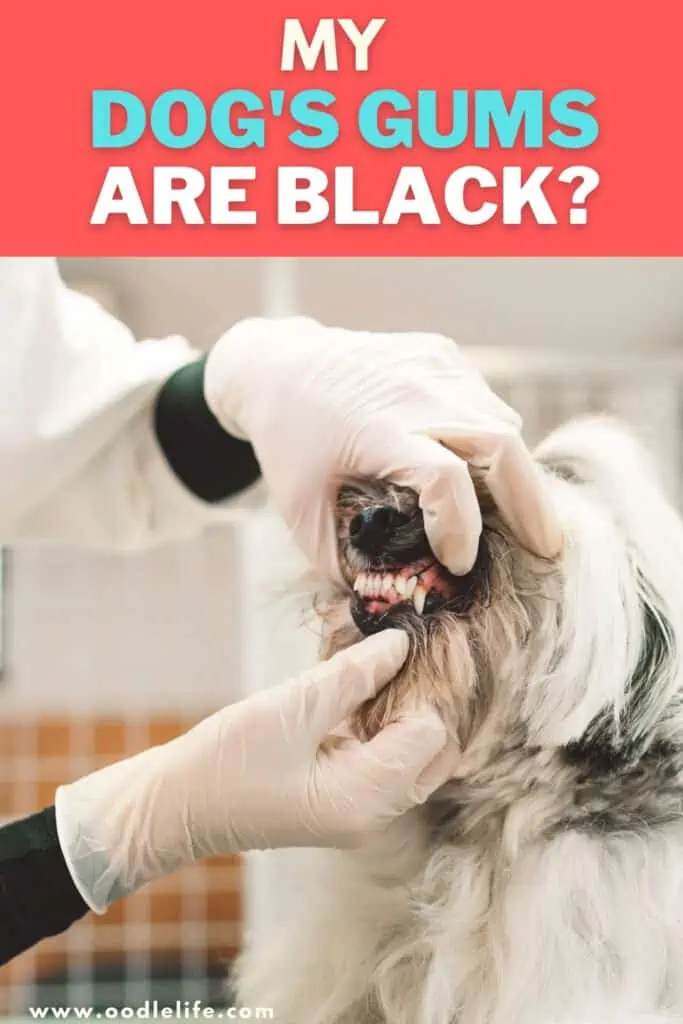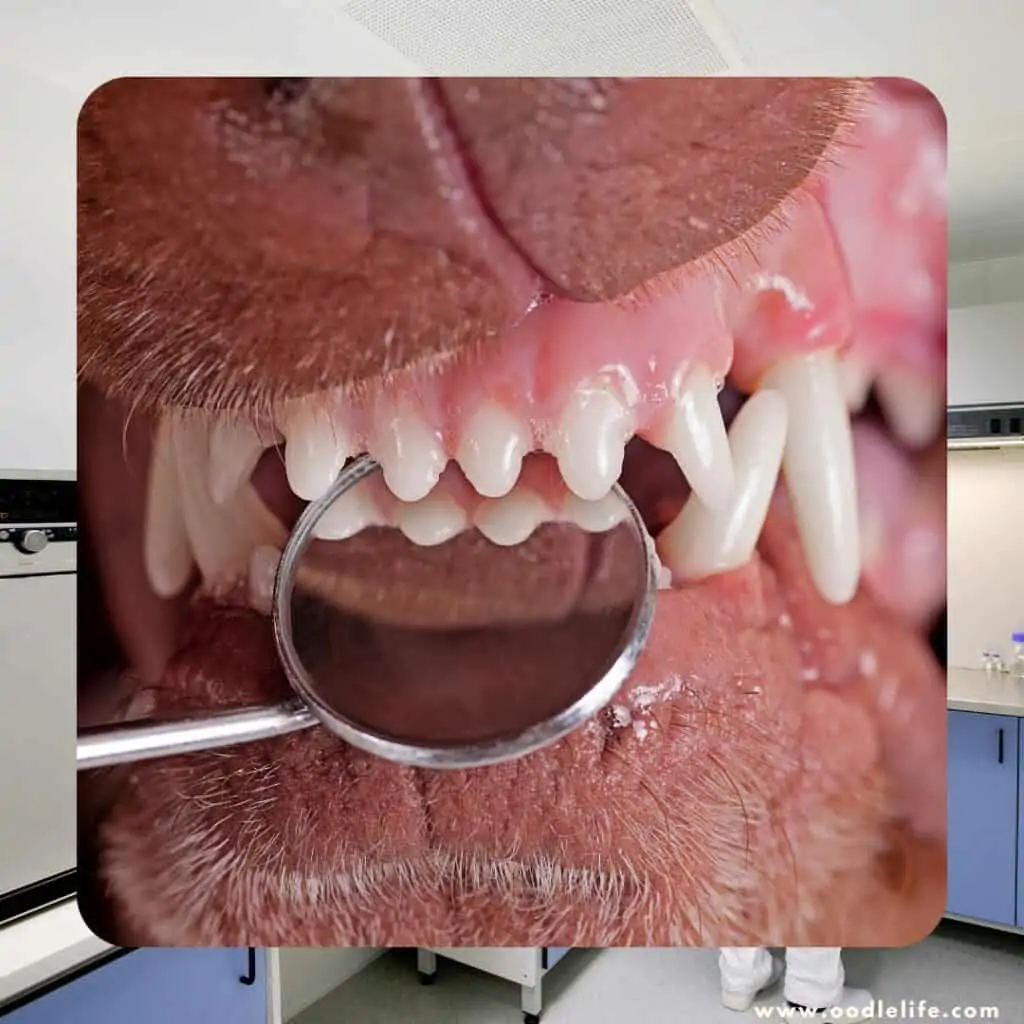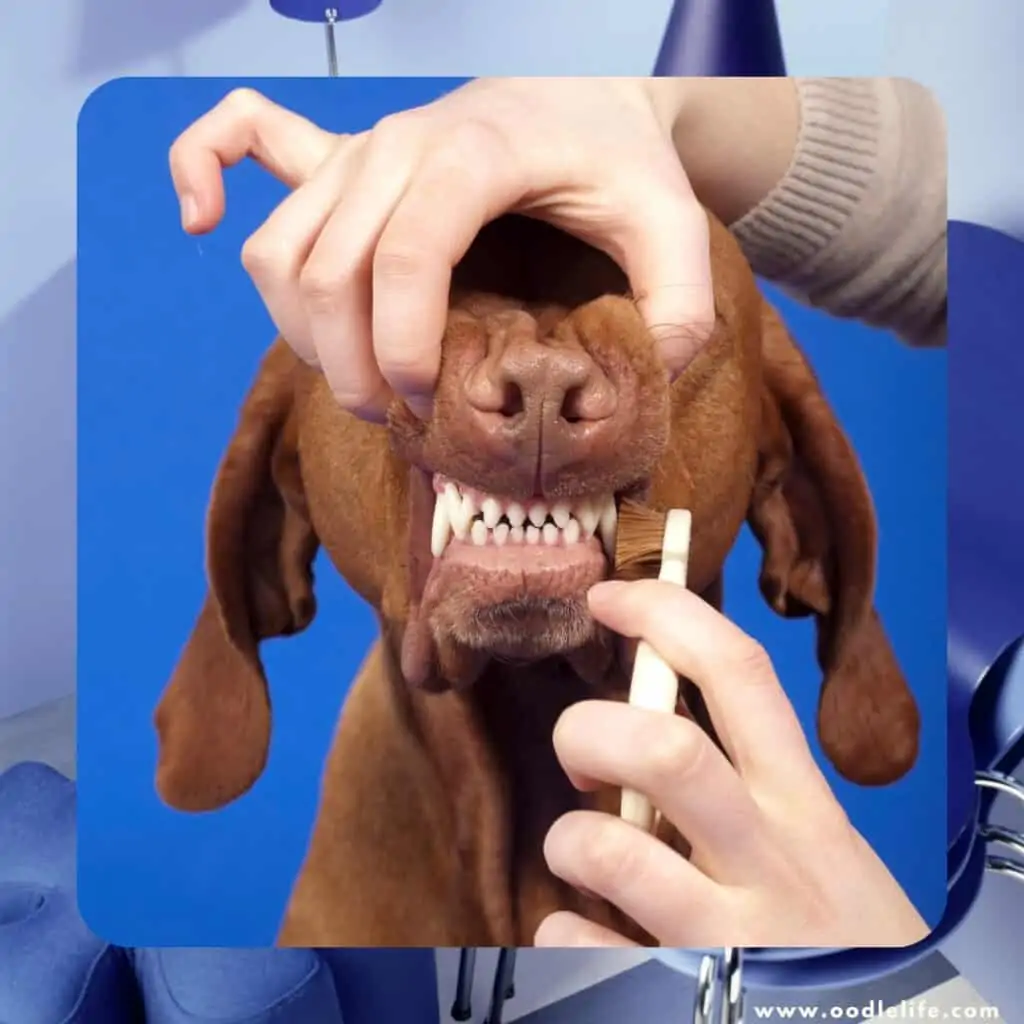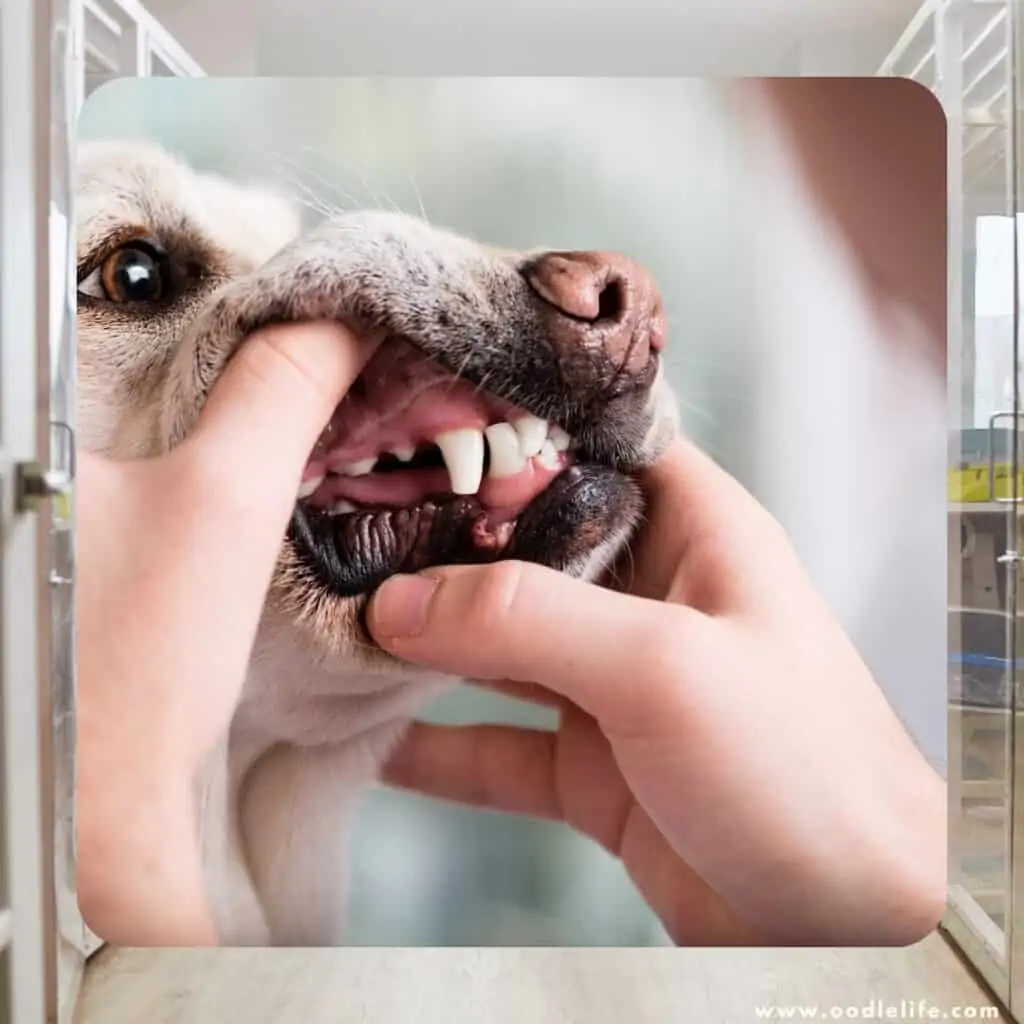Dog Gums Are Black – Is This Normal?
When you’re a pet owner, there are multiple different health concerns you might have for your dog.
Every time something changes, it’s easy to worry that they are ill or having health issues. If you’ve noticed that your dog’s gums are black, you want to know if this is normal or something to worry about.

Are Black Dog Gums Normal?
Dogs with darker skins and pigmentation can naturally have black or dark gums. Some dogs have spotted skin which translates to their gums as well. However, if your dog hasn’t always had black gums, it could be a health problem or a gum disease.
The essential question to answer is whether or not your dog’s gums have always been black. If they have always been this way, you have nothing to worry about-it’s just a natural part of its pigmentation. However, if it’s a new phenomenon, you might want to talk to a healthcare professional about it.
Of course, the most essential step is to talk to your veterinarian. A healthcare professional that knows your dog and their healthcare is a vital asset that you should take advantage of. Research your dog’s breed and skin color, and ask your vet what you should do for gum health.
Natural Pigmentation

The most common reason for black gums in dogs is natural pigmentation. Darker dogs often have darker pigmentation, which means that their gums are naturally dark or black. Some lighter dogs also have black spots or pigmentation in their mouth, which is also natural.
This can also be the case with dark spots on the gums or tongue. Certain breeds have a predisposition to increased pigmentation in the mucus membranes of the mouth. Some of these breeds include:
- Chow Chow (Big Fluffy Dogs)
- Shar Pei
- Dalmatian
- Australian Shepherd
- Irish Setter (and Irish Doodles)
- Pit Bull breeds
- Large Terrier breeds
- Mastiff breeds
- Newfoundland
If your dog has black or dark spots on its gums and isn’t one of these breeds, that doesn’t automatically mean that they are unhealthy gums. It could still be natural pigmentation or developments in the dog’s mouth. If you’re unsure, talk to your veterinarian about it.
Dog Oral Diseases

If your dog’s mouth is suddenly darkening, swelling, or feels tender, it could be a very unhealthy thing. Dog dental hygiene is essential for your dog’s overall health, and lack of oral hygiene can lead to oral diseases or gum issues (known as periodontal disease for dogs).
If your dog has other behavioral or health symptoms in addition to black gums, they might be ill. Look for gum sensitivity, trouble eating, discomfort, swelling, foul breath, or bleeding. If any of these symptoms occur, take your dog to the vet immediately.
If there wasn’t a black spot before and now there is, it could be an issue. Especially if the black spot is right along the edge of the tooth or gum line, as this could be a sign of canine gum disease. It might be mistaken for a cavity, but it is more likely to be gum disease.
However, if your dog has raised black spots, it could be more serious than gum disease. Raised black spots with gum pain and tooth sensitivity could be an early sign of canine gum cancer. Catching cancer early is one of the only ways to prevent serious pain and early death for your dog.
Gum disease and cancer are the most common reasons that a dog’s gums randomly turn black. If you think your dog might have either of these issues, talk to your veterinarian immediately. The earlier you can prevent this, the better off your dog will be.
How to Prevent Gum Disease in Dogs
Of course, the best way to treat gum disease in your dog is to prevent it entirely. Before your dog’s gums turn black and get sensitive, you can brush them regularly, help them use mouthwash, and make sure they are fed healthy food for their teeth.
Another way to prevent gum disease in your dog is to avoid feeding it too much sugar. Dogs’ bodies were not created to consume much sugar, and their teeth and gums can suffer. Although it’s tempting to get them the puppuccino every time you get coffee, it can cause gum disease and pain later on in life.
Brushing your dog’s teeth seems silly, but can help your dog, especially if they are prone to weak gums. Treats that help dental health are also a great choice, especially if they are low-sugar options.
Aging Dog Gums

Another reason that your dog might have blackened or swollen gums is just regular aging. As dog’s age, their overall health deteriorates. Aging is a natural thing but doesn’t mean that your dog has to live in pain. Talk to your veterinarian about pain medication to make your dog’s later years easier.
Certain breeds and types of dogs age better than others. Your dog might have hereditary issues that cause its gums to deteriorate more quickly. You might need to change your dog’s diet as they age, to include better food for sensitive gums and aging digestive systems.
What Should I Do If My Dog has Blackened Gums?
If your dog doesn’t usually have dark gums and their gum color has started to change, it might be time to contact your veterinarian. Whether it’s age, natural discoloration, or oral disease, it’s always best to talk to someone who knows your pet and its health.
For gum diseases, there are medicines and treatments available. If you catch it early enough, you can save your dogs gums and dental health. Without proper treatment, you might have to spend more money and healthcare to pull your dog’s teeth later on in life.
If your pet has blackened gums from age or age-related issues, you should still go to your vet. You might not be able to reverse the gum damage or dental disease if it is caused by aging, but there is a possibility that your dog’s life might be more comfortable as they age. Ask your vet about palliative gum disease care.

Final Thoughts
Your dog’s gums are an essential part of their health. To prevent ill health and gum disease, keep your dog’s diet healthy and their teeth clean.